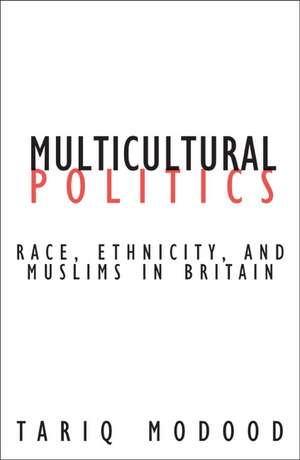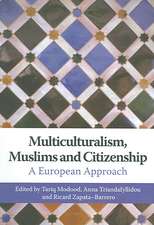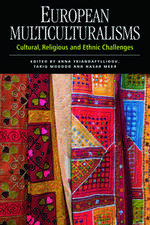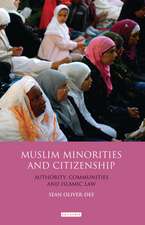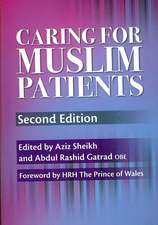Multicultural Politics: Racism, Ethnicity, and Muslims in Britain: Contradictions of Modernity, cartea 22
Autor Tariq Modood Cuvânt înainte de Craig Calhounen Limba Engleză Paperback – 21 mar 2005
If, as W. E. B. Du Bois observed, the problem of the twentieth century was the problem of the color line, the problem of the twenty-first century may be one that reaches back to premodernity: religious identity. Even before 9/11 it was becoming evident that Muslims, not blacks, were perceived as the "other" most threatening to Western society, even in a relatively pluralist nation such as Britain. In Multcultural Politics, one of the most respected thinkers on ethnic minority experience in England describes how what began as a black-white division has been complicated by cultural racism, Islamophobia, and a challenge to secular modernity. Tariq Modood explores the tensions that have risen among advocates of multiculturalism as Muslims assert themselves to catch up with existing equality agendas while challenging some of the secularist, liberal, and feminist assumptions of multiculturalists. If an Islam-West divide is to be avoided in our time, Modood suggests, then Britain, with its relatively successful ethnic pluralism and its easygoing attitude toward religion, will provide a particularly revealing case and promising site for understanding.
| Toate formatele și edițiile | Preț | Express |
|---|---|---|
| Paperback (2) | 210.90 lei 43-57 zile | |
| EDINBURGH UNIVERSITY PRESS – 15 mar 2005 | 210.90 lei 43-57 zile | |
| University of Minnesota Press – 21 mar 2005 | 225.87 lei 43-57 zile |
Preț: 225.87 lei
Nou
Puncte Express: 339
Preț estimativ în valută:
43.22€ • 45.25$ • 35.76£
43.22€ • 45.25$ • 35.76£
Carte tipărită la comandă
Livrare economică 07-21 aprilie
Preluare comenzi: 021 569.72.76
Specificații
ISBN-13: 9780816644889
ISBN-10: 0816644888
Pagini: 260
Ilustrații: 5 line art, 10 tables
Dimensiuni: 149 x 229 x 13 mm
Greutate: 0.37 kg
Ediția:First edition
Editura: University of Minnesota Press
Colecția Univ Of Minnesota Press
Seria Contradictions of Modernity
Locul publicării:United States
ISBN-10: 0816644888
Pagini: 260
Ilustrații: 5 line art, 10 tables
Dimensiuni: 149 x 229 x 13 mm
Greutate: 0.37 kg
Ediția:First edition
Editura: University of Minnesota Press
Colecția Univ Of Minnesota Press
Seria Contradictions of Modernity
Locul publicării:United States
Notă biografică
Tariq Modood is professor of sociology, politics and public policy and the founding director of the Centre for the Study of Ethnicity and Citizenship at the University of Bristol. He is also the cofounding editor of Ethnicities.
Cuprins
Contents ForewordCraig CalhounAcknowledgementsIntroduction: Racism, Asian Muslims and the Politics of Difference Part I: Racisms, Disadvantage and Upward Mobility1. "Difference", Cultural-Racism and Anti-Racism2. If Races Do Not Exist, Then What Does?: Racial Categorization and Ethnic Realities3. Ethnic Diversity and Racial Disadvantage in Employment4. Ethnic Differentials in Educational Performance Part II: The Muslim Challenge5. Reflections on the Rushdie Affair: Muslims, Race and Equality in Britain6. Muslims, Incitement to Hatred and the Law7. Multiculturalism, Secularism and the State8. Muslims and the Politics of Multiculturalism9. Rethinking Multiculturalism and Liberalism Conclusion: Plural BritishnessNotesBibliography
Descriere
If, as W. E. B. Du Bois observed, the problem of the twentieth century was the problem of the color line, the problem of the twenty-first century may be one that reaches back to premodernity: religious identity. Even before 9/11 it was becoming evident that Muslims, not blacks, were perceived as the "other" most threatening to Western society, even in a relatively pluralist nation such as Britain. In Multcultural Politics, one of the most respected thinkers on ethnic minority experience in England describes how what began as a black-white division has been complicated by cultural racism, Islamophobia, and a challenge to secular modernity. Tariq Modood explores the tensions that have risen among advocates of multiculturalism as Muslims assert themselves to catch up with existing equality agendas while challenging some of the secularist, liberal, and feminist assumptions of multiculturalists. If an Islam-West divide is to be avoided in our time, Modood suggests, then Britain, with its relatively successful ethnic pluralism and its easygoing attitude toward religion, will provide a particularly revealing case and promising site for understanding.
